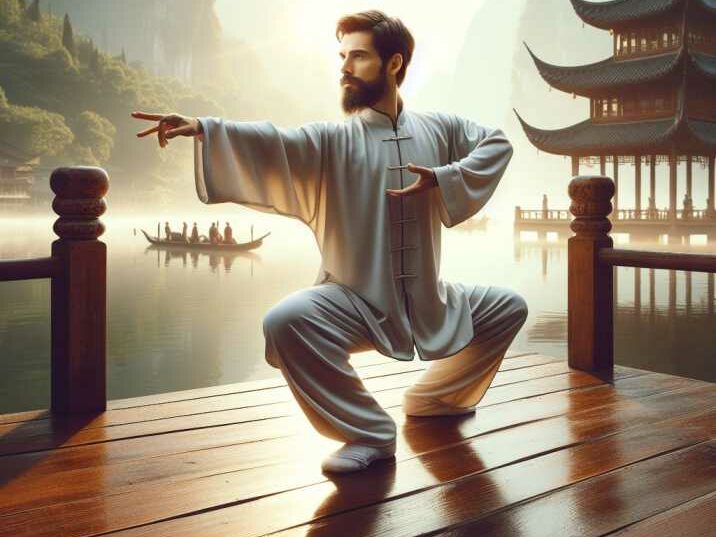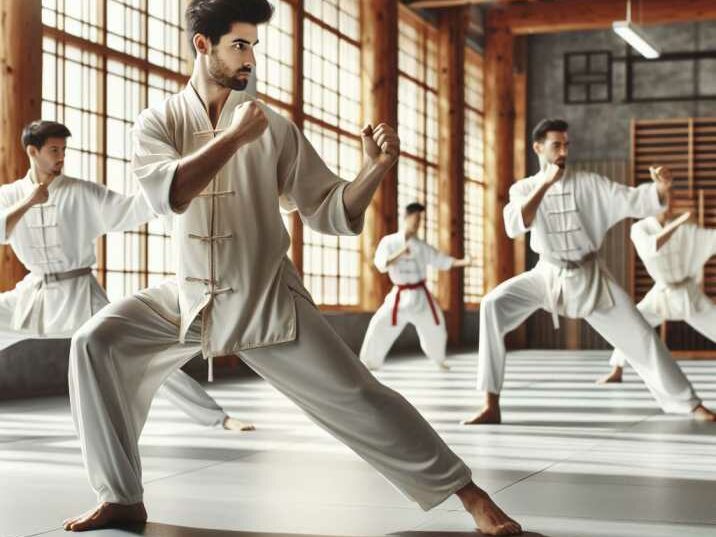Introduction:
Table of Contents
Kung Fu and its origins
What is Kung Fu, and where did it originate? These are questions that have intrigued martial arts enthusiasts and historians alike for centuries. In this comprehensive guide, we will delve deep into the roots of Kung Fu and its origins, techniques, philosophy, and cultural impact. Join us on a journey through time and tradition as we unravel the mysteries of this ancient martial art.

The Origins of Kung Fu:
Kung Fu, also known as Chinese martial arts, traces its origins back to ancient China, where it emerged as a means of self-defense and physical training. The term “Kung Fu” itself translates to “skill achieved through hard work and practice.” Legend has it that Kung Fu was developed by Bodhidharma, an Indian monk who traveled to China and introduced a series of physical exercises to help strengthen the bodies of the Shaolin monks.
Historical Development of Kung Fu:
Over the centuries, Kung Fu evolved and diversified, with various styles and schools emerging across China. Each style of Kung Fu is unique, with its own set of techniques, forms, and philosophies. Some of the most well-known styles include Shaolin Kung Fu, Wing Chun, Tai Chi, and Wushu. These styles have been passed down through generations, preserving the rich heritage of Chinese martial arts.
The Philosophy of Kung Fu:
At the heart of Kung Fu lies a profound philosophy that goes beyond mere physical combat. Central to this philosophy is the concept of “Wu De,” or martial virtue, which emphasizes qualities such as humility, respect, and self-discipline. Practitioners of Kung Fu are not only trained in fighting techniques but also in cultivating a strong moral character and inner strength.
Techniques and Training Methods:
Kung Fu encompasses a wide range of techniques, including strikes, kicks, throws, and joint locks. Training in Kung Fu involves rigorous physical conditioning, with practitioners focusing on building strength, flexibility, and agility. Forms, or “katas,” are also an integral part of Kung Fu training, consisting of choreographed sequences of movements that simulate combat scenarios.
Cultural Significance of Kung Fu:
Beyond its practical applications, Kung Fu holds immense cultural significance in Chinese society and beyond. It is not just a martial art but a way of life, deeply rooted in tradition and spirituality. Kung Fu has inspired countless works of art, literature, and film, showcasing its enduring popularity and influence on global culture.
Kung Fu in Pop Culture:
From classic kung fu films starring legendary actors like Bruce Lee and Jackie Chan to modern blockbusters like “Crouching Tiger, Hidden Dragon,” Kung Fu has left an indelible mark on popular culture. Its dynamic and visually stunning techniques continue to captivate audiences around the world, ensuring that the legacy of Kung Fu lives on for generations to come.
The Future of Kung Fu:
In the digital age, Kung Fu has found new avenues of expression and dissemination through online platforms and social media. With the rise of mixed martial arts (MMA) and other combat sports, Kung Fu continues to evolve and adapt to the changing times. However, its core principles of discipline, respect, and self-improvement remain unchanged, ensuring that Kung Fu will endure for centuries to come.

Table of information of Kung Fu and its origins
| Key Insights | Details |
|---|---|
| 1. Historical Origins | Traces back to ancient Chinese warriors and the Yellow Emperor. |
| 2. Philosophical Essence | Emphasizes harmony, discipline, and self-improvement. |
| 3. Diversity of Styles | Encompasses various styles like Tai Chi, Wing Chun, and more. |
| 4. Global Influence | Transcends borders, impacting popular culture worldwide. |
| 5. Modern Relevance | Embraced for its mental, physical, and communal benefits. |
Conclusion:
In conclusion, What is Kung Fu and its origins? Kung Fu is not just a martial art but a living embodiment of ancient wisdom and tradition. Its origins rooted in the rich tapestry of Chinese history, Kung Fu continues to inspire and influence people around the world. Whether practiced for self-defense, physical fitness, or spiritual enlightenment, Kung Fu remains a timeless pursuit that transcends borders and cultures.
FAQs (Frequently Asked Questions)
1. What is the literal translation of “Kung Fu”?
The term “Kung Fu” translates to “skill achieved through hard work and practice.”
2. Are there different types of Kung Fu?
Yes, Kung Fu encompasses various styles, each with its own techniques and philosophies.
3. How long does it take to master Kung Fu?
Mastery of Kung Fu is a lifelong journey, requiring dedication, discipline, and continuous practice.
4. Is Kung Fu only about physical combat?
No, Kung Fu encompasses mental and spiritual aspects, promoting holistic self-improvement.
5. Can anyone learn Kung Fu?
Yes, Kung Fu is accessible to individuals of all ages and fitness levels, fostering personal growth and well-being.


